
Sign in to your ScreenRant account
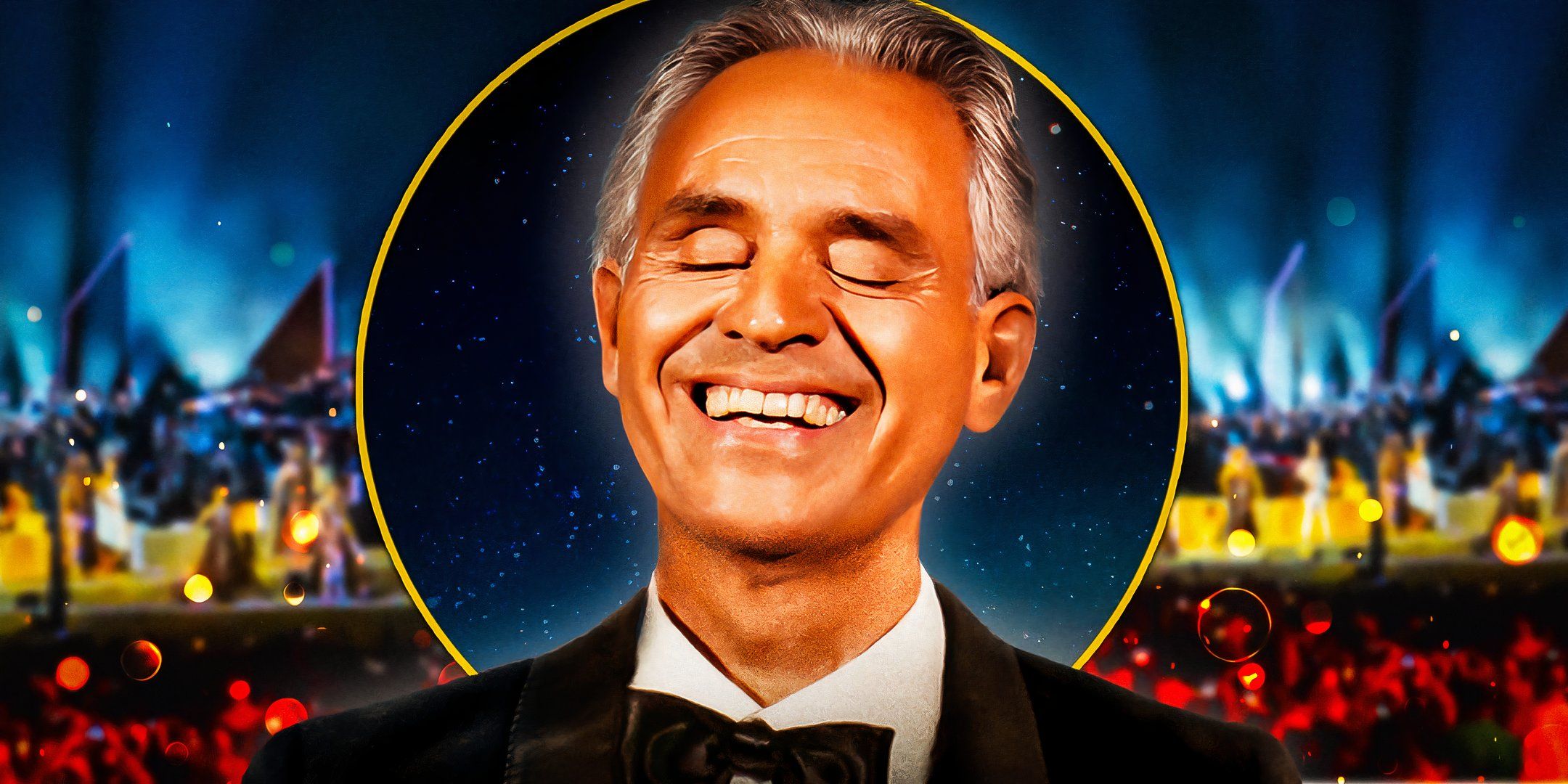
Andrea Bocelli 30: The Celebration is a new concert film that honors the legacy and music of one of the world’s best-known singers. Filmed across a three-day concert event, Andrea Bocelli 30: The Celebration sees Bocelli performing some of his best-known renditions of classic songs at a truly unique venue, accompanied by global superstars including Ed Sheeran, Russell Crowe, Johnny Depp, and Sofia Vergara—many of whom are also on Bocelli’s latest album, Duets, out now. There is more to it than that, however, as the concert film paints a picture of Bocelli’s status among his peers through candid footage filmed in Tuscany, Italy.
The concert was captured by director Sam Wrench, whose work is known by audiences worldwide, even if his name isn’t. Wrench is a storied director of concert films, and his past projects include Billie Eilish Live at the O2, and Taylor Swift: The Eras Tour. For Andrea Bocelli 30: The Celebration, Wrench found a tone fitting of Bocelli’s unique style, both capturing the concert experience for viewers worldwide and offering access to moments beyond what a ticket holder could see.
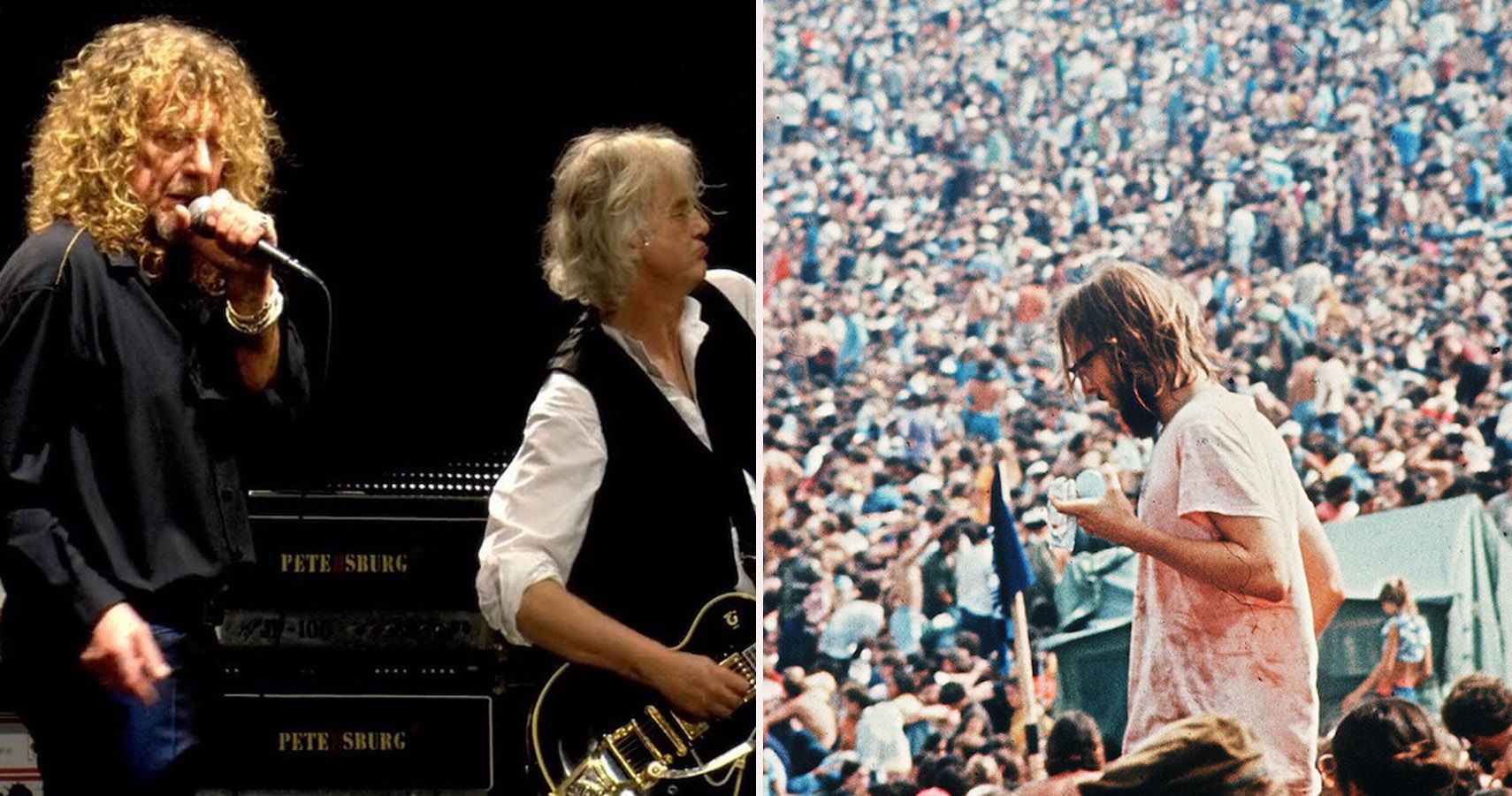
Related
10 Best Concert Films (According To IMDB)
The second best thing to live music is an entertaining concert movie that transfers the energy of a performance to film. Here are the best.
Screen Rant spoke with Wrench about his work directing Andrea Bocelli 30: The Celebration. Wrench discussed how Bocelli’s reputation and style affected the aesthetic of the film, working with the staggering array of guest artists that featured on the show, and more. Wrench even revealed his hopes for Taylor Swift: The Eras Tour cut songs to be released and briefly teased what to expect from one of his next projects, A Nonsense Christmas with Sabrina Carpenter.
Sam Wrench Details How He Works With Artists And Creative Directors On Capturing Concerts
“You End Up Always Letting The Music Lead”
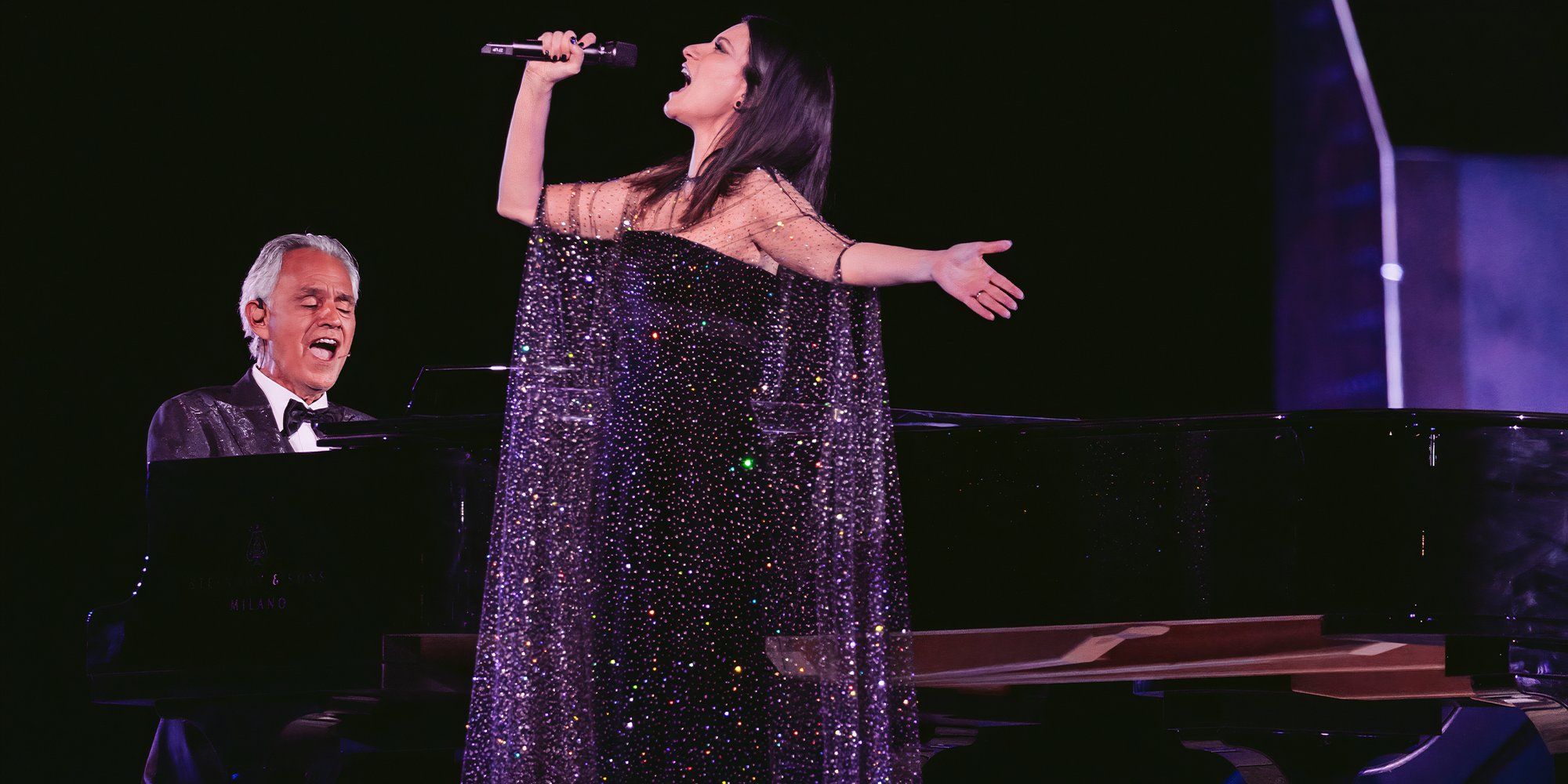 Photo Credit: Luca Rossetti
Photo Credit: Luca Rossetti Artists can be pretty opinionated about how they want their shows to be. I imagine you're not always helping them put their show together—is it more about capturing it?
Sam Wrench: I think it varies project to project. [With] some, you come in and the show is fully formed, it's great, and the artist loves it. Then the question is more about, “How do they want it to feel? How do they feel when they're performing? How do they want this cinematic extension of the thing that they've created to feel?” And all different artists have different opinions on that.
Sometimes you come in and it's not fully formed. This one was a ground-up show, and so I worked with Francesco Negrin, who's the creative director. He put together an amazing show [while going] like, “This would be cool on camera,” or, “How can you capture this?” So, there are moments in here that really were just for camera rather than for audience. So, it definitely varies. But I think that you end up always letting the music lead, and letting the artist and the artistry on stage be your kind of grounding point and your North Star. And if you do that, then you are always, at least, faithful and authentic to what happened.
You did The Eras Tour, and you've worked with other huge artists like Billie Eilish. Andrea Bocelli is not going to be running around the stage in the same way that Taylor Swift is. How does the performance style of the artist make your job easier or harder?
Sam Wrench: Sometimes we talk about the energy coming down the lens [versus] the lens creating the energy. Sometimes that’s song-to-song with certain artists, but usually with a Billie or a Taylor type, that energy is just coming at you. So, yes, you want the camera moves and the visual grammar to reflect that and to match it, but you're not trying to create energy from the camera moves because there's so much coming off the stage anyway.
Then, there are other artists where, like you say, the show is more static, maybe the lighting's more static, and there you are trying to create drama with camera moves. You’re not trying to build a pace and an energy that isn't with the BPM and the music, but you're trying to bring a visual grammar that reveals and takes you from one place to another and you really lean in on those camera moves.
Andrea was definitely the latter. Particularly because he's static, it tends to be that the artist’s he's with are static, and so you want these moments of drama—these moments of revealing from the orchestra to him, the steady evolving, and all those sorts of things. So, really, it's just about, at the start of the process, understanding what that's going to be, and then you build the camera plot to reflect that.
Wrench Talks Facilitating The Movie’s Candid Conversations
The Director Wanted To Add Context And A “Sense Of Intimacy”
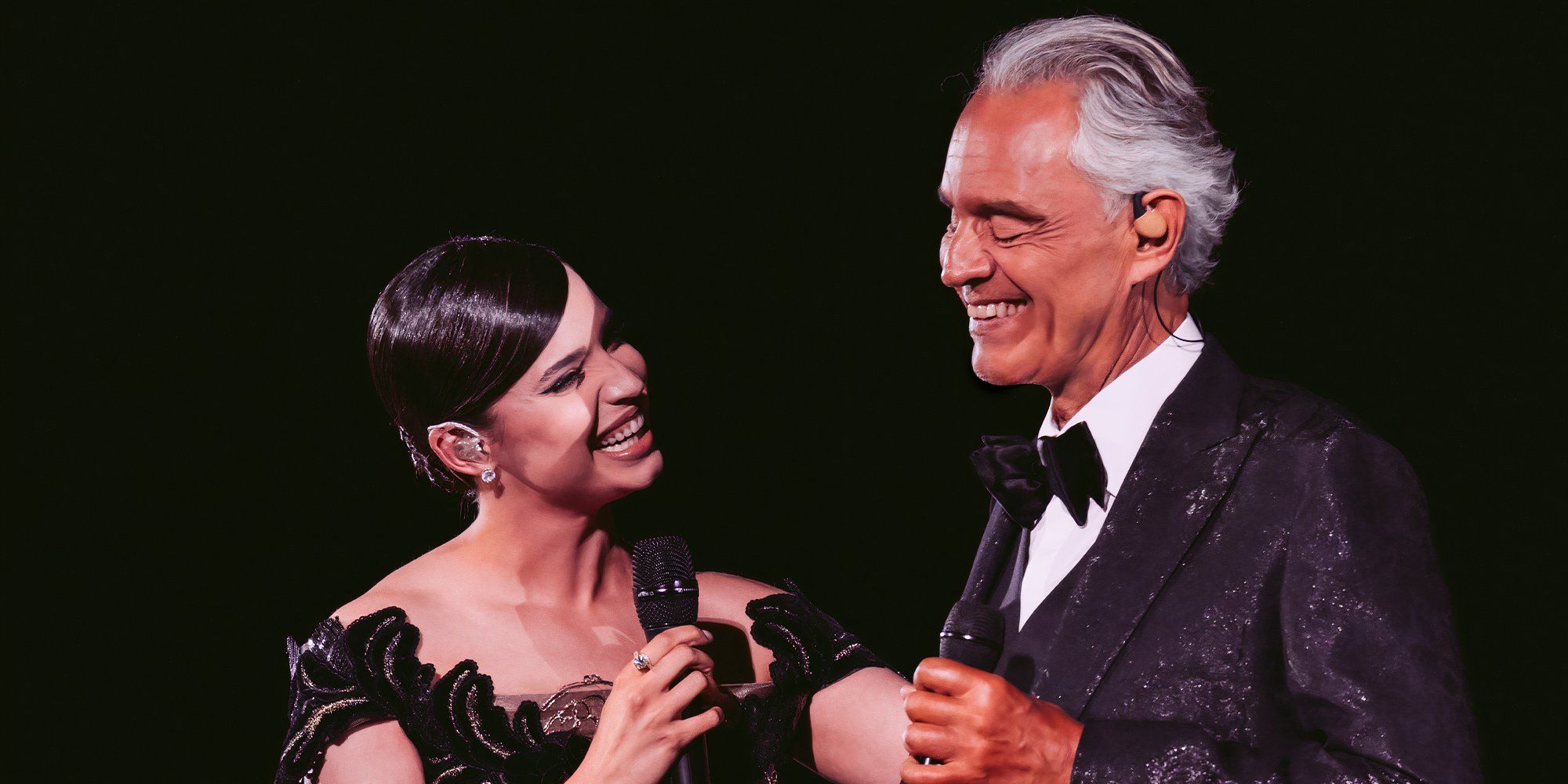 Photo Credit: Luca Rossetti
Photo Credit: Luca Rossetti For this film, you have the concert itself, but you also have these shots at the countryside. You have this lunch happening. How did those come together, and where did the idea come from?
Sam Wrench: I think context is important in concert films. Sometimes you have so much backstory and water cooler chat that you don't need to bring any context to that. For this one, it really felt right to try and get that sense of intimacy that was happening night on night and in the town as well. We started this idea that there'd be all these little side conversations that you weren't aware of, people bumping into each other backstage and stuff, but we didn't want to film it backstage because it's porta cabins and it didn't feel very Tuscan. I wanted them to feel almost random.
It is not a documentary. There's not a particular through line to them. They’re just dropping in for a nice little moment with someone that you are about to see perform, or you just saw perform, to bring you some context and bring you some levity. I dind’t want them to do any more than make you feel warm: “Oh, that’s nice.”
We were looking at Coffee and Cigarettes —the Jim Jarmusch thing. It is just two people having a conversation. Yes, it’s about the faith, or it’s about the location, but it’s not trying to have this big overarching thing with a natural beginning, middle, and end. So, we had this ambition and then this lunch idea came about, and it was like, “Well, that would be amazing. That will be really fruitful for a bunch of little moments.” It was, then, “But how do we get out so we’re not trapped in the lunch? Let’s just set some other little conversations up.”
And we really did. We just got on the phone with different artists and said, “Hey, do you want to speak to Andrea's son about the importance of faith?” [The artist is] like, “Yeah, no worries,” [and it’s like], “Well, cool. We'll do it at the little church.” Or, “Sofia, do you want to have a coffee with Matteo and Aida and just chat s***?” And because a lot of them were coming, obviously, for the concert, [and] spending a couple of days in Lajatico. It was like, “Yeah, no worries.” So, it was really easy. The conversations came together really naturally.
There were some people that obviously knew each other. There's an amazing moment with David Foster and Brian May outside on the grass and we're shooting it from quite far away—that's not a produced conversation. That is a genuine conversation that was happening. One of them happened to be miked for another scene and they're explaining how they know Andrea and how they found him. It is just a really lovely, genuine moment between two absolute legends. So, I love that moment. I also love the moment with Virginia telling Brian about her friend that loves him. It's just so genuine. The camera isn't there in that moment. That's just a really, really lovely artist and Brian being really lovely to his friend's daughter at lunch in the family home, which is happening in every family home across Italy in that Sunday. That's what I love about that one.
Andrea Bocelli 30: The Celebration Features Russell Crowe, Can Still Be Enjoyed By Les Miserables Haters
“I Think His Performance Is Amazing”
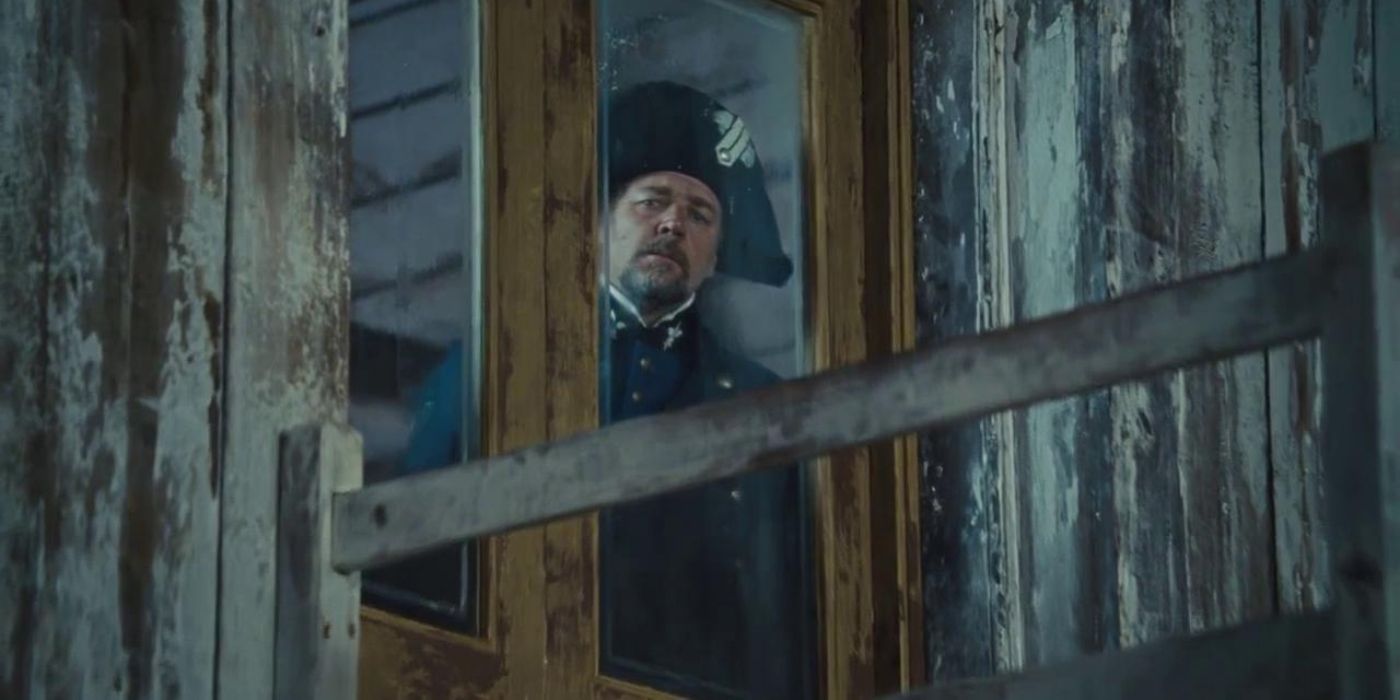
The last time a lot of people will have seen Russell Crowe sing was in Les Miserables, which famously did not go over well with everyone. Do you think this will redeem his singing career in the eyes of viewers?
Sam Wrench: I think so. He's had a good little tour. He's been out on the road and doing something. I think those shows have gone down well. Yes, [that was] probably the last time people saw him in a cinema singing, but he tours. He plays shows and stuff.
I think so. I think his performance is amazing, because you have no expectations. He comes out and that voice is so deep, it's so incredible, [with] such a tone. You're like, “Whoa.” And yeah, I hope so. I hope people see it for what it is as well—as someone that loves performing. To do it in that landscape for such a great voice like Andrea, why not? More people should do that. If you're passionate about something, go and do it.
Wrench Told Cinemas Not To Turn Down The Music
“It’s Supposed To Be Action Levels Of Loud The Whole Time”
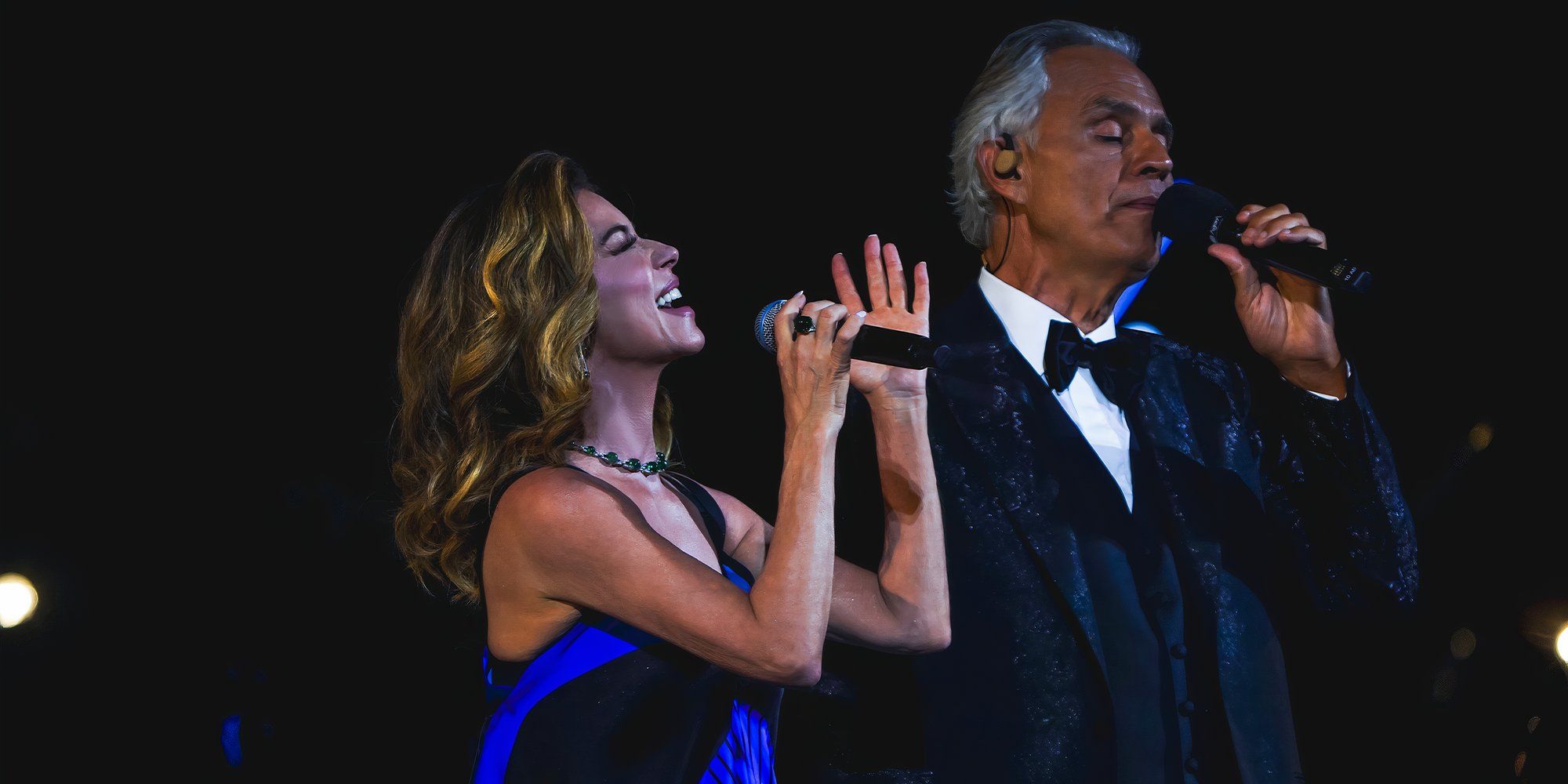 Photo Credit: Luca Rossetti
Photo Credit: Luca Rossetti Here is my nerdiest question for you. What is your collaboration like with the sound people—the people that are actually capturing the audio from the stage?
Sam Wrench: We talk about audience mic placement and all of that sort of stuff, and then when we get to post, I think that there's definitely a different style of mixing needed for music than there is narrative. And there are a few collaborators we worked with. We worked with a longtime collaborator of Andrea who has mixed a lot of his records, and then we also worked with John Ross in LA who did The Eras Tour for me as well, and is kind of a meeting of those two worlds—cinema and music. I think it's about it feeling full, and about that audience feeling kind of omnipresent.
One really interesting thing is that there's a conversation that we have with the cinemas before each film—and I send a note, or I ask for a note to be shared from the distributors to the cinemas—because there's a tendency to bring the volumes down. The way it works, from what I understand—I'm fairly naive on it—is that almost music always reads as an action sequence level.
A film wouldn't have a constant action sequence, bar a couple, and so they kind of bring the level down, so the quieter vocals can sound really quiet. We always ask for everything to be loud. It's supposed to be action levels of loud the whole time—it's music, and it's live music. That's one of the big things in the transfer from our finishing suite to the individual cinemas around the world—making sure that that's maintained. As we've done a few of these now, we've gotten better and better at that communication and what we expect for the audience to hear in the cinema.
Wrench On Collaborating With Andrea Bocelli & Guests Like Ed Sheeran
“Everyone Was So Gracious”
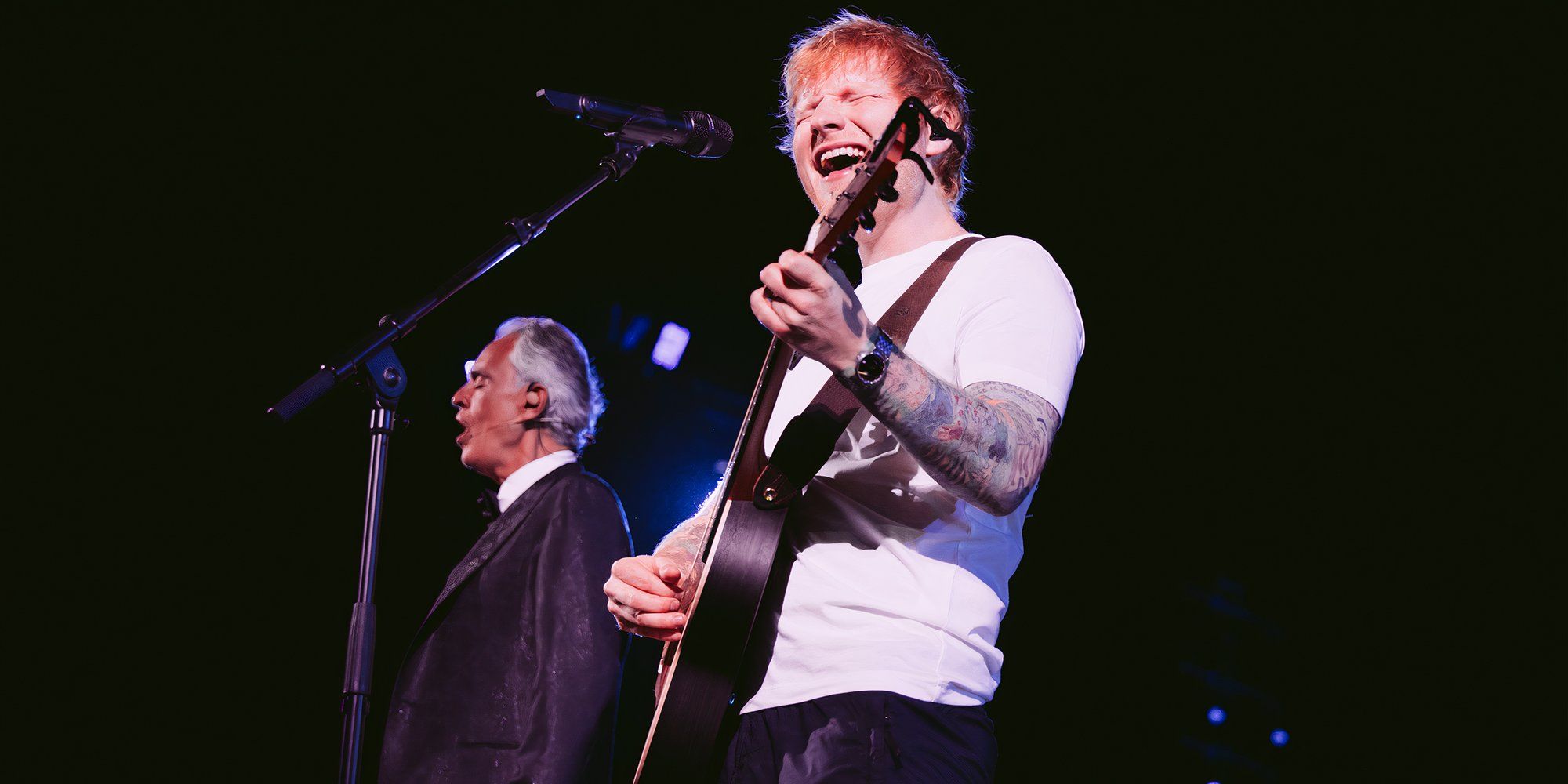 Photo Credit: Luca Rossetti
Photo Credit: Luca Rossetti There are a lot of guests on this, and a lot of them have done concert videos before. Ed Sheeran has one at Wembley Stadium, for example. Do any of those people have opinions on how they would like to be filmed?
Sam Wrench: Everyone was so gracious. Everyone literally couldn't have given more time and been more understanding. “How can we help you?” was really the vibe. I think they all saw this was an opportunity to celebrate Andrea, and so they want it to sound great. Of course, they want it to look great, but they're there to celebrate him, and if he and Veronica and everyone is happy, then they were more than happy. Ed was on holiday, I think, and took two days off and came and did the lunch and stuff and was just so gracious with his time. From that regard, everyone was so supportive and excited that a film was being made.
And with Andrea himself, how involved was he in talking about how he wanted this to feel, and what he wanted people to take away from it? What was your collaboration like?
Sam Wrench: It is obviously interesting because he is who he is, and so your visual conversation is a very different conversation. It's much more about feeling. He wanted to celebrate Tuscany, he wanted to celebrate Lajatico, and he wanted a real sense of where the concert took place. [With] the lunch, he was on the same page as me. He wanted it to feel very relaxed and he didn't want it to feel like a film shoot where people were being forced to do things and stuff. And that was the same for us. We wanted it to feel as natural as possible when we’d look in on these amazing moments and these little conversations. From that point of view, he was very receptive—and Veronica as well. They were very understanding and supportive. To be honest, I think they had maybe three notes in terms of visual stuff on the film, which is amazing. Little bits of, like, “This person would love this moment,” and stuff. They were very supportive.
But Ultimately, “That’s For Taylor To Decide”
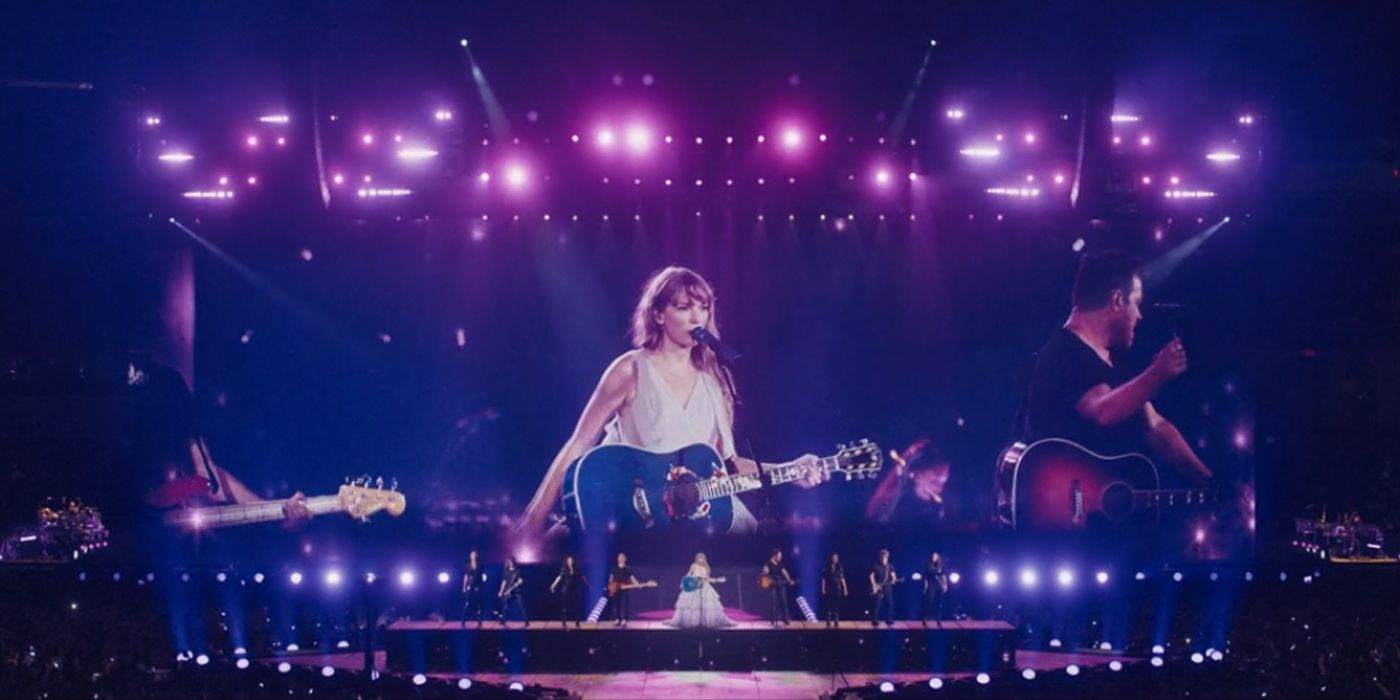
I believe there's at least one song that didn't make it to The Eras Tour that was recorded—“no body, no crime”. Can you confirm that it does exist in video format, and will anyone ever see it?
Sam Wrench: Everything was recorded. Will anyone ever… I don't know. I guess that's for Taylor to decide. There were so many amazing moments and we couldn't keep everyone in the cinema for three and a half hours, and there's some more went in, obviously, in the Disney plus release. I hope so. I hope everyone gets to see everything.
Wrench Hypes Up A Nonsense Christmas With Sabrina Carpenter
"It's Very Christmasy. It's Super Fun."
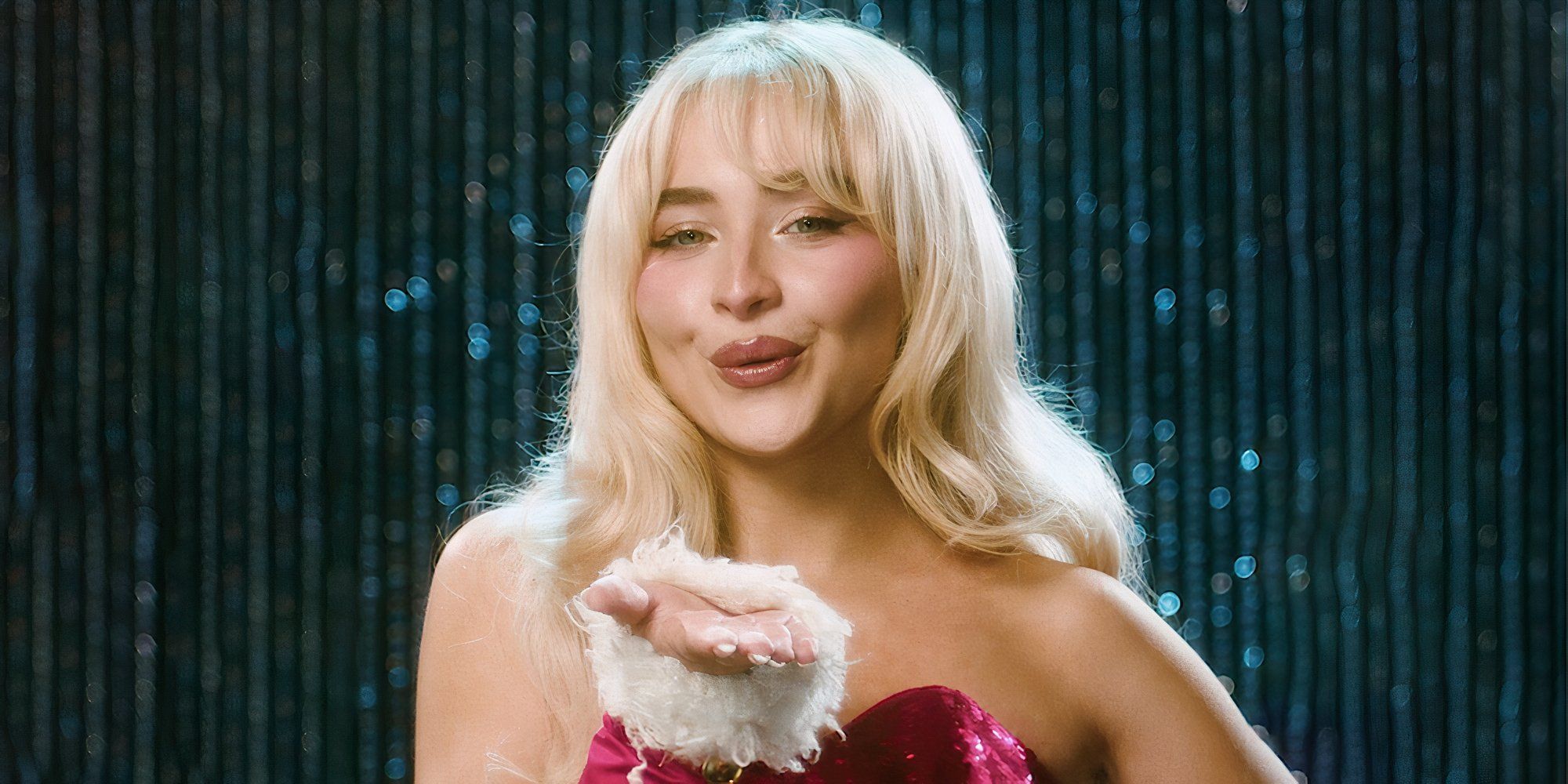
And I saw you’re doing A Nonsense Christmas with Sabrina Carpenter. Is there anything you could say about what we can expect?
Sam Wrench: That one's tricky because I don't know what the rules are on what [I can say], other than that it is amazing. It's very Christmasy. It's super fun. It's a little bit nonsense. It's going to be great.
About Andrea Bocelli 30: The Celebration
The film marks Bocelli’s 30th anniversary with a three-day concert event attended by more than 30,000 guests from around the world. The homecoming not only honors Bocelli’s illustrious career, but it holds profound significance for him - Teatro del Silenzio is the very place where Bocelli’s love of music first began and where he holds annual concerts paying homage to his Italian roots. The once-in-a-lifetime concert showcases Bocelli’s genre-spanning repertoire, alongside captivating duets with an unprecedented cast of global superstars, including Ed Sheeran, Shania Twain, Jon Batiste, Brian May, Sofia Vergara, David Foster & Katharine McPhee, Matteo Bocelli, Sofia Carson, Lauren Daigle, and more, as well as special appearances by Kim & Khloe Kardashian.
Andrea Bocelli 30: The Celebration comes to theaters November 8.

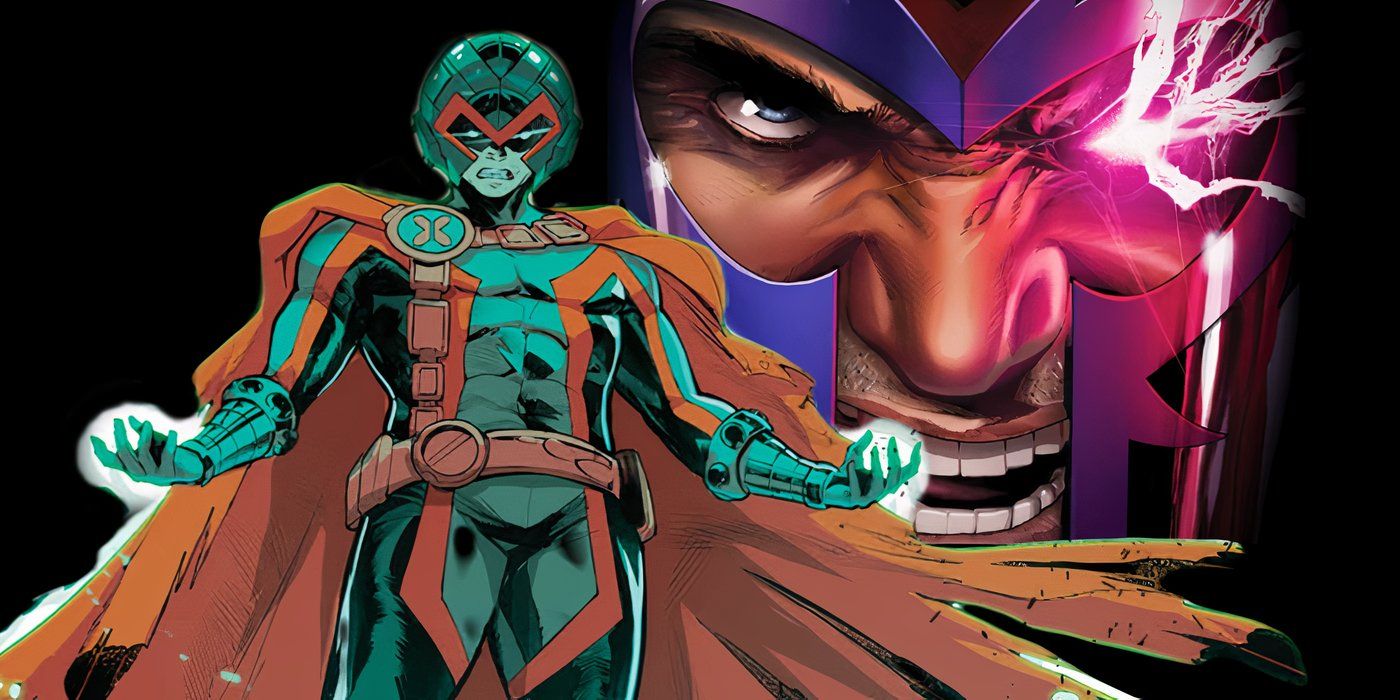
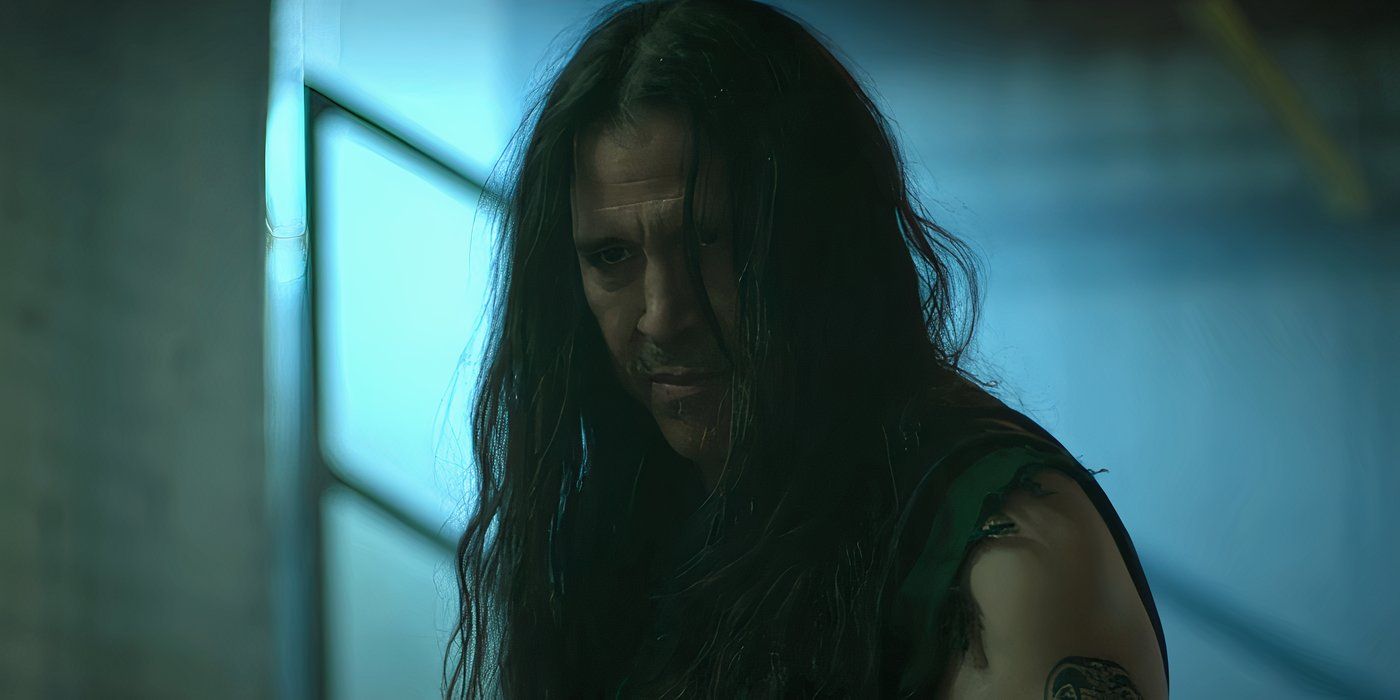
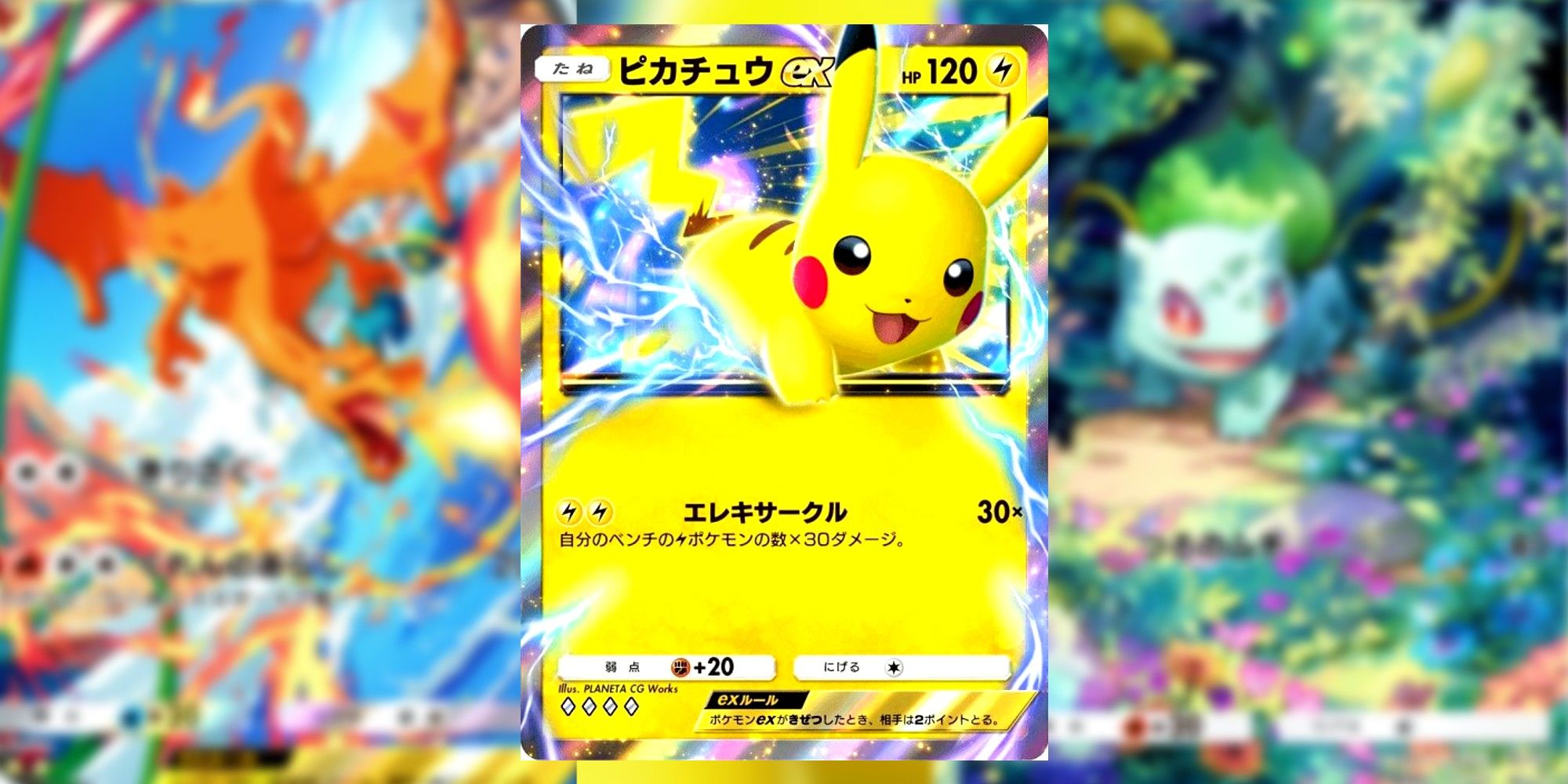
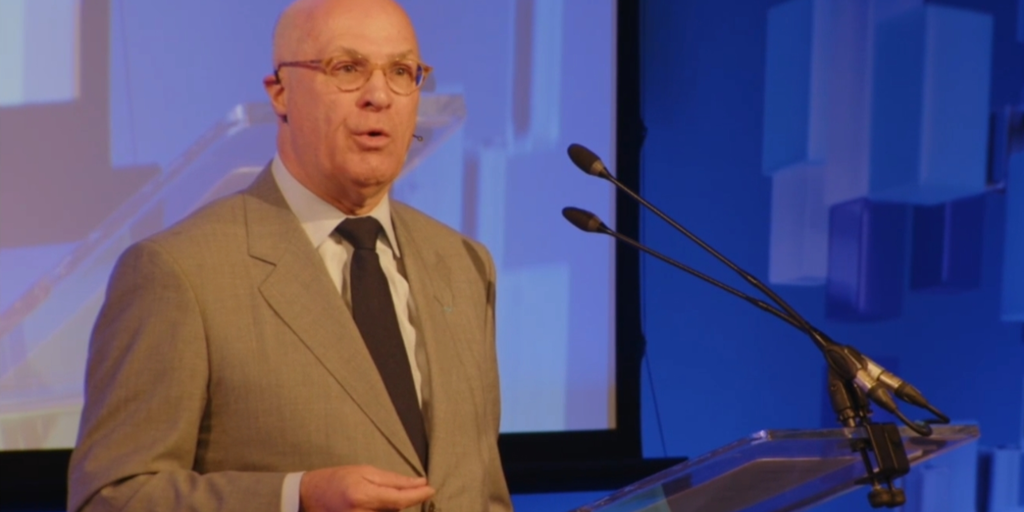




 English (US) ·
English (US) ·